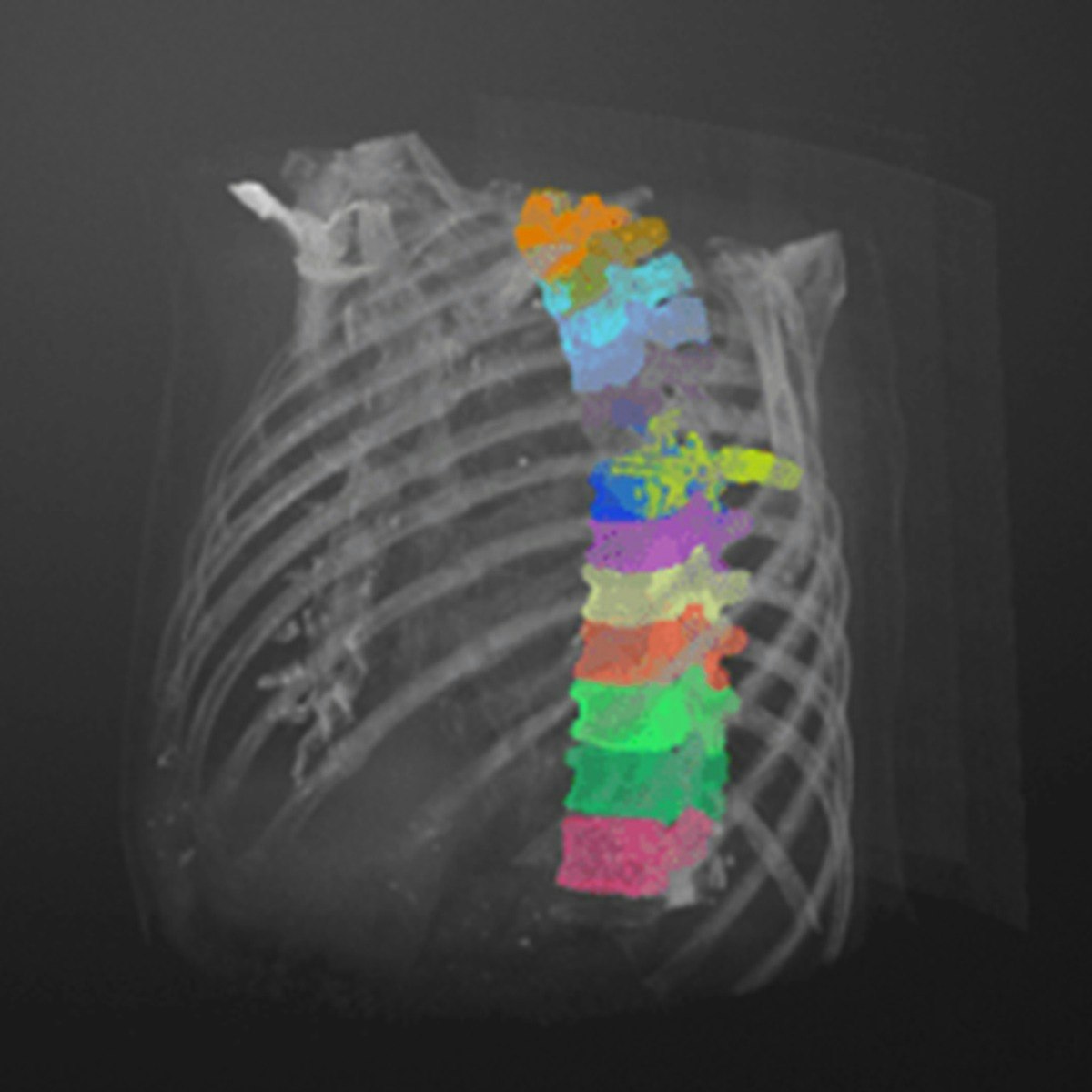Image Processing Engineer
Image Processing Engineer: Shaping How We See the World Digitally
An Image Processing Engineer works at the fascinating intersection of computer science, mathematics, and electrical engineering. Their primary role involves designing, developing, and implementing algorithms that manipulate digital images to enhance their quality, extract meaningful information, or prepare them for analysis by humans or machines. This field powers technologies ranging from the medical scans that diagnose diseases to the visual effects seen in movies and the systems that allow autonomous vehicles to perceive their surroundings.
Working as an Image Processing Engineer offers intellectually stimulating challenges. You might find yourself improving the clarity of satellite photos, developing systems that automatically detect defects in manufacturing, or creating novel ways for computers to 'see' and interpret complex scenes. The direct impact on cutting-edge applications in healthcare, robotics, entertainment, and scientific discovery makes this a compelling career path for those passionate about visual data and problem-solving.
Key Responsibilities of an Image Processing Engineer
Understanding the day-to-day tasks of an Image Processing Engineer helps clarify whether this role aligns with your interests and skills. The responsibilities are diverse, blending theoretical knowledge with practical implementation.
Algorithm Design and Optimization
The core function of an Image Processing Engineer is to create and refine algorithms that perform specific tasks on images. This could involve noise reduction, contrast enhancement, edge detection, object segmentation, or feature extraction. Engineers must understand the mathematical principles behind these algorithms, such as filtering techniques or transformations like the Fourier transform.
Optimization is crucial. Algorithms must not only be accurate but also efficient enough to run within the constraints of the target system, whether it's a powerful cloud server or a resource-limited embedded device. This often involves choosing the right data structures, optimizing code (perhaps in C++ or using specialized libraries), and leveraging hardware acceleration like GPUs.
Developing these algorithms requires a strong analytical mindset and the ability to translate theoretical concepts into functional code. Testing and validation are integral parts of this process to ensure the algorithm performs correctly under various conditions.
Collaboration and Teamwork
Image Processing Engineers rarely work in isolation. They are often part of larger, multi-disciplinary teams. Collaboration with Computer Vision Engineers is common, as image processing often serves as a preliminary step for higher-level vision tasks like object recognition or scene understanding.
Interaction with software engineers is necessary to integrate image processing modules into larger applications or systems. Data scientists may collaborate on developing machine learning models that operate on processed image features. Hardware engineers provide input on sensor capabilities and system constraints.
Effective communication skills are therefore essential. Engineers must be able to explain complex technical concepts to team members with different backgrounds and understand requirements from various stakeholders to ensure the final solution meets the project goals.
System Integration
Algorithms don't exist in a vacuum; they need to run on actual hardware and interact with other software components. Image Processing Engineers are often involved in integrating their algorithms into complete systems. This might involve working with specific camera interfaces, ensuring compatibility with different operating systems, or deploying code onto embedded platforms or cloud infrastructure.
Tasks can include camera calibration to correct lens distortion, fusing data from multiple sensors, or setting up processing pipelines. Understanding the interplay between hardware (sensors, processors) and software is vital for successful integration and achieving real-time performance where necessary.
This aspect of the role requires practical, hands-on skills and troubleshooting abilities to resolve issues that arise when different parts of a system interact.
Testing and Quality Assurance
Ensuring the reliability and accuracy of image processing solutions is paramount, especially in critical applications like medical diagnosis or autonomous navigation. Engineers are responsible for developing comprehensive testing strategies.
This involves creating test datasets that cover a wide range of scenarios, defining metrics to evaluate algorithm performance (e.g., accuracy, speed, robustness to noise), and implementing automated tests. Debugging code and identifying the root cause of unexpected behavior or performance bottlenecks are also key parts of the quality assurance process.
A meticulous approach and attention to detail are crucial for delivering high-quality, dependable image processing systems.
Technical Skills and Tools
Success in image processing engineering hinges on a strong foundation of technical skills and familiarity with industry-standard tools and libraries. These competencies enable engineers to design, implement, and optimize complex imaging solutions.
Essential Programming Languages
Proficiency in specific programming languages is fundamental. Python is widely used due to its extensive libraries (like OpenCV, Pillow, scikit-image) and ease of prototyping, making it ideal for algorithm development and data analysis.
C++ is often preferred for performance-critical applications, real-time systems, or when close hardware interaction is needed. Its efficiency makes it a common choice for deploying optimized algorithms in production environments or on embedded systems.
MATLAB remains popular, particularly in research, academia, and for rapid prototyping, thanks to its specialized toolboxes for image processing and signal processing, along with powerful visualization capabilities.
These online courses provide introductions and practical applications using Python, a cornerstone language for many image processing tasks.
This book offers practical guidance on using Python for image processing tasks.
Key Libraries and Frameworks
Beyond core languages, familiarity with specialized libraries is essential. OpenCV (Open Source Computer Vision Library) is the de facto standard, offering a vast collection of algorithms for image processing and computer vision tasks, with interfaces for Python, C++, Java, and more.
For tasks involving deep learning, frameworks like TensorFlow and PyTorch are indispensable. They provide the tools necessary to build, train, and deploy neural networks for image classification, segmentation, object detection, and generation.
Other useful libraries include scikit-image (for Python, focused on scientific imaging), Pillow (Python Imaging Library fork for basic manipulations), and MATLAB's Image Processing Toolbox™.
Understanding how to leverage these libraries effectively significantly accelerates development and allows engineers to build upon existing, optimized implementations.
These courses focus on using specific libraries like OpenCV and PyTorch for image-related tasks, including segmentation and shape recognition.
This book provides practical projects using the OpenCV library.
Mathematical Foundations
Image processing is inherently mathematical. A solid grasp of several key areas is non-negotiable. Linear algebra is fundamental for understanding image transformations, feature vectors, and techniques like Principal Component Analysis (PCA).
Calculus is necessary for optimization problems and understanding concepts like image gradients, which are crucial for edge detection. Signal processing concepts, including convolution, filtering, and frequency domain analysis (e.g., Fourier Transform), are central to many image enhancement and analysis techniques.
Probability and statistics underpin methods for noise modeling, pattern recognition, and machine learning algorithms used in image analysis.
These courses delve into the mathematical underpinnings, particularly signal processing and Fourier analysis, which are vital for image processing.
These books provide comprehensive coverage of signal processing and signals/systems theory.
Hardware Understanding
While primarily a software-focused role, understanding the hardware involved in image acquisition and processing is often beneficial. Knowledge of different sensor types (CCD, CMOS) and their characteristics (noise levels, dynamic range) helps in designing robust algorithms.
Familiarity with hardware acceleration techniques is increasingly important. Understanding how to utilize Graphics Processing Units (GPUs) via frameworks like CUDA or OpenCL can dramatically speed up computation-intensive tasks.
For engineers working on real-time or embedded systems, knowledge of Field-Programmable Gate Arrays (FPGAs) or specialized processors (DSPs, VPUs) might be necessary to implement algorithms efficiently under strict power and latency constraints.
These courses offer insights into implementing image processing algorithms on hardware like FPGAs.
This book specifically covers designing image processing systems for FPGAs.
Formal Education Pathways
Embarking on a career as an Image Processing Engineer typically begins with a strong formal education. While alternative routes exist, a university degree provides the essential theoretical foundation and structured learning environment.
Undergraduate Foundations
A bachelor's degree in a relevant engineering or science discipline is usually the minimum requirement. Common choices include Computer Engineering, Electrical Engineering, or Computer Science. These programs provide the necessary background in mathematics (calculus, linear algebra, differential equations), programming, data structures, and algorithms.
Some students might also enter the field with degrees in Physics or Mathematics, supplementing their theoretical knowledge with programming and specialized coursework. Regardless of the major, a strong emphasis on quantitative skills and computational thinking is crucial.
During undergraduate studies, seeking out courses related to signal processing, basic image processing, or computer vision can provide a valuable head start.
Graduate Studies and Specialization
While a bachelor's degree can open doors to entry-level positions, a Master's or Ph.D. is often beneficial, particularly for roles involving research, advanced algorithm development, or specialization in specific application domains like medical imaging or autonomous systems.
Graduate programs allow for deeper dives into areas like computer vision, machine learning, pattern recognition, biomedical imaging, or advanced signal processing. A Master's degree typically takes 1-2 years and often includes a project or thesis component, providing practical research experience.
Pursuing graduate studies allows for specialization and development of expertise in state-of-the-art techniques, making candidates more competitive for specialized roles.
The Role of Research (PhD)
A Ph.D. is primarily geared towards those interested in pursuing careers in academic research, leading R&D teams in industry, or tackling highly novel and challenging problems. This path involves several years of intensive research culminating in a dissertation that contributes original knowledge to the field.
Ph.D. training develops deep expertise in a specific subfield, strong analytical and problem-solving skills, and the ability to conduct independent research. While a significant time commitment, it is often necessary for roles at the forefront of innovation.
Core University Coursework
Key courses that form the bedrock of an Image Processing Engineer's knowledge include Digital Signal Processing (DSP), which covers fundamental concepts like sampling, filtering, and transforms applicable to images.
Courses in Machine Learning and Pattern Recognition are increasingly vital due to the prevalence of AI-driven techniques. Computer Vision courses provide context on how images are interpreted for higher-level understanding.
Strong foundations in Linear Algebra, Probability and Statistics, and Data Structures & Algorithms are prerequisites for success in these more specialized subjects.
These foundational courses cover digital signal processing and the broader topic of signals and systems, essential for understanding image data.
These books provide comprehensive introductions to Digital Image Processing, often used as textbooks in university courses.
Online Learning and Self-Directed Study
While formal education provides a strong base, online learning offers flexible and accessible pathways for acquiring specific skills, supplementing traditional degrees, or even facilitating a career transition into image processing engineering. OpenCourser provides tools to browse engineering courses and find resources tailored to your needs.
Bridging Gaps with Online Courses
Can you become an Image Processing Engineer solely through online courses? It's challenging but increasingly feasible, especially for roles focused on applying existing tools and libraries. Online platforms provide access to high-quality courses on programming languages (Python, C++), essential libraries (OpenCV, TensorFlow, PyTorch), mathematical foundations (Linear Algebra, Signal Processing), and specific image processing techniques.
For career pivoters, online courses are invaluable for building the necessary technical skills efficiently. They allow learners to study at their own pace and focus on areas directly relevant to job requirements. Pairing online learning with personal projects is key to demonstrating practical ability.
Platforms like OpenCourser help learners discover a vast range of courses from various providers, compare options, and even find deals and discounts to make learning more affordable.
These courses provide comprehensive introductions or specialized skills in image processing and computer vision, suitable for self-directed learning.
The Power of Projects
Theoretical knowledge gained from courses is essential, but practical application is what truly solidifies understanding and impresses potential employers. Engaging in personal projects is arguably the most crucial part of self-directed learning or supplementing formal education.
Start with smaller projects, like implementing basic image filters (blurring, sharpening), performing color space conversions, or building a simple edge detector. Gradually move towards more complex tasks, such as creating an object detection system using OpenCV, developing a program for automatic image enhancement, or experimenting with image segmentation using deep learning models.
Building a portfolio of projects hosted on platforms like GitHub demonstrates initiative, practical skills, and the ability to apply learned concepts to solve real problems. This portfolio often speaks louder than certificates alone.
These project-based courses offer hands-on experience with specific image processing tools and techniques.
Supplementing Formal Education
For students currently enrolled in university programs, online courses offer excellent opportunities to go beyond the standard curriculum. They can be used to learn specific tools or libraries (like a particular deep learning framework) that might only be touched upon in class.
Online resources can also provide alternative explanations of complex topics, helping to reinforce understanding. Furthermore, students can explore advanced or niche subjects not offered at their institution, broadening their knowledge base and potentially identifying areas for future specialization or research.
Using online courses proactively allows students to tailor their learning, gain practical skills alongside theory, and stay current with rapidly evolving technologies in the field.
Setting Realistic Expectations
While online learning is powerful, it's important to maintain realistic expectations. Transitioning into image processing engineering, especially from a non-technical background, requires significant time, effort, and discipline. Foundational mathematics and programming skills are non-negotiable and take dedication to master.
Self-study requires strong motivation and the ability to structure one's own learning path. While certificates from online courses can be added to a resume, they are often viewed as supplementary to degrees and, more importantly, a strong project portfolio. OpenCourser's Learner's Guide offers tips on structuring self-learning and making the most of online resources.
Furthermore, highly advanced research or specialized R&D roles may still favor candidates with graduate degrees from traditional academic institutions. However, for many engineering and application-focused positions, a combination of foundational knowledge, practical skills demonstrated through projects, and continuous learning can pave the way to a successful career.
Career Progression and Opportunities
The career path for an Image Processing Engineer offers diverse opportunities for growth and specialization. Understanding the typical trajectory and market landscape can help in planning long-term career goals.
Starting Your Career
Entry-level positions often carry titles like Junior Image Processing Engineer, Algorithm Engineer, Image Analysis Technician, or Software Engineer with a focus on imaging or computer vision. Initial responsibilities usually involve implementing and testing existing algorithms, assisting senior engineers, debugging code, and gaining familiarity with the team's tools and workflows.
The focus during this stage is on building practical experience, deepening technical skills, and understanding the specific application domain (e.g., medical, automotive, consumer electronics). Contributing to successful project components and demonstrating a strong learning aptitude are key to advancement.
Mid-Career Growth
With several years of experience, engineers typically progress to roles like Image Processing Engineer or Senior Image Processing Engineer. Responsibilities expand to include designing new algorithms, leading smaller projects or feature developments, mentoring junior engineers, and taking ownership of significant system components.
Specialization often occurs at this stage. An engineer might focus deeply on areas like medical image reconstruction, real-time processing for robotics, algorithm optimization for specific hardware, or developing deep learning models for vision tasks. Some may transition into team leadership or project management roles while maintaining a technical focus.
Continuous learning is vital to stay updated with new techniques and tools. Attending conferences, taking advanced courses, and contributing to open-source projects can support mid-career growth.
Reaching Senior and Executive Levels
Highly experienced engineers can advance to roles like Principal Engineer, Staff Engineer, Architect, or Research Scientist. These positions involve setting technical direction, tackling the most challenging problems, designing complex systems, and influencing strategy. Deep technical expertise and a track record of innovation are essential.
Some may move into management roles, overseeing entire engineering teams or departments. At the highest levels, individuals might become a Chief Technology Officer (CTO) for companies heavily reliant on imaging technology or establish themselves as independent consultants offering specialized expertise.
These senior roles often require a blend of technical mastery, strategic thinking, leadership skills, and potentially a Ph.D. for research-intensive positions.
Job Market Insights
The demand for Image Processing Engineers remains strong, driven by advancements in AI, automation, healthcare technology, and consumer electronics. Fields like autonomous vehicles, medical diagnostics, augmented reality, security systems, and robotics heavily rely on sophisticated image processing and computer vision capabilities.
According to the U.S. Bureau of Labor Statistics (BLS), employment for related fields like Computer and Information Research Scientists is projected to grow much faster than the average for all occupations. While the BLS doesn't track "Image Processing Engineer" as a distinct category, the growth in fields requiring computer vision and AI suggests favorable prospects. You can explore general data for Computer and Information Research Scientists and Software Developers on the BLS website for broader context.
Salaries vary significantly based on experience, education level, industry, and geographic location. Roles requiring specialized skills (e.g., deep learning, medical imaging) or advanced degrees often command higher compensation. The market is competitive, especially for positions at top tech companies or research institutions.
Industry Applications of Image Processing Engineering
The impact of image processing engineering is felt across a wide spectrum of industries, revolutionizing processes and enabling new capabilities. Understanding these applications highlights the real-world relevance and versatility of the field.
Transforming Healthcare
Medical imaging is one of the most significant application areas. Image Processing Engineers develop algorithms to enhance the quality of images from MRI, CT, X-ray, and ultrasound scanners, making diagnoses more accurate. They work on techniques for image reconstruction, noise reduction, segmentation of anatomical structures or tumors, and registration (aligning images taken at different times or from different modalities).
The rise of AI has led to Computer-Aided Diagnosis (CAD) systems, where algorithms help radiologists detect subtle signs of disease, such as cancerous nodules in lung scans or diabetic retinopathy in eye images. Image processing also plays a role in surgical planning and navigation, microscopy image analysis for pathology, and drug discovery.
These books delve into the specifics of processing medical images.
Enabling Autonomous Systems
Self-driving cars, drones, and robots rely heavily on image processing and computer vision to perceive and navigate their environment. Engineers develop algorithms to process data from cameras, LiDAR, and radar sensors.
Tasks include object detection (identifying pedestrians, vehicles, traffic signs), lane keeping, semantic segmentation (understanding the different parts of a scene), simultaneous localization and mapping (SLAM), and sensor fusion. Ensuring real-time performance and robustness under varying weather and lighting conditions are major challenges in this domain.
Beyond transportation, image processing is used in industrial automation for quality control inspection, robot guidance in manufacturing, and automated surveillance systems.
This course introduces computer vision within the context of embedded systems, relevant for autonomous applications.
Enhancing Entertainment and Media
The entertainment industry utilizes image processing extensively. In filmmaking, it's crucial for visual effects (VFX), including object removal, compositing, color grading, and motion tracking. Image restoration techniques can improve the quality of old films.
Augmented Reality (AR) and Virtual Reality (VR) applications depend on real-time image processing for tracking user movements, recognizing objects, and seamlessly blending virtual elements with the real world. Image stabilization in cameras, content-based image retrieval (image search), and video compression standards (codecs) also rely on sophisticated image and video processing algorithms.
These courses touch upon computer graphics rendering, a related field often employing image processing techniques.
Advancing Earth Observation
Satellite and aerial imagery provide vast amounts of data about our planet. Image Processing Engineers develop techniques to analyze this data for various applications. Remote sensing uses image processing for environmental monitoring (tracking deforestation, ice melt, pollution), precision agriculture (assessing crop health), urban planning, disaster management (mapping flood zones or wildfire damage), and resource exploration.
Specific tasks include image enhancement, geometric correction, feature extraction (identifying roads, buildings, land cover types), change detection, and creating 3D terrain models. Handling large datasets and multi-spectral or hyper-spectral imagery presents unique challenges.
This book focuses specifically on applying image processing to remote sensing data.
Emerging Trends in Image Processing Engineering
The field of image processing is constantly evolving, driven by advances in computing power, sensor technology, and artificial intelligence. Staying abreast of emerging trends is crucial for engineers in this dynamic domain.
The AI Revolution: Generative Models
Deep learning, particularly Convolutional Neural Networks (CNNs), has revolutionized many image processing tasks. Beyond analysis, Generative Adversarial Networks (GANs) and Diffusion Models are enabling remarkable capabilities in image synthesis, super-resolution, style transfer, and data augmentation.
These AI-driven techniques allow for the creation of realistic synthetic images, enhancement of low-quality images, and generation of training data where real data is scarce. Engineers increasingly need skills in deep learning frameworks (TensorFlow, PyTorch) and an understanding of these advanced architectures.
This course focuses on Convolutional Neural Networks, a cornerstone of modern image processing.
This book discusses generative techniques in the context of art, which often involves image processing.
Processing at the Edge
There is a growing trend towards performing image processing directly on devices (edge computing) rather than sending data to the cloud. This is driven by the need for real-time response (e.g., in autonomous systems), privacy concerns, and bandwidth limitations.
This requires developing highly efficient algorithms and optimizing them for resource-constrained hardware like mobile phones, embedded systems, and specialized AI accelerators. Techniques like model quantization, pruning, and knowledge distillation are employed to create lightweight yet powerful models suitable for edge deployment.
Deepfakes and Ethical Frontiers
The same generative AI techniques that offer benefits also enable the creation of highly realistic "deepfakes" – manipulated images or videos that can be used for misinformation, fraud, or harassment. This raises significant ethical concerns.
Consequently, there is growing research interest in developing robust methods for detecting manipulated media. Image Processing Engineers may be involved in creating algorithms that analyze subtle inconsistencies or artifacts introduced during the generation process to identify fake content. The ethical implications of deploying imaging technologies, particularly those involving identification or manipulation, are becoming an increasingly important consideration.
Quantum's Potential Role
While still largely in the research phase, quantum computing holds potential for specific image processing tasks. Quantum algorithms could theoretically offer exponential speedups for problems like large-scale pattern matching, certain types of optimization used in image analysis, or simulations relevant to imaging physics.
Significant breakthroughs in quantum hardware and algorithm development are needed before this becomes mainstream. However, it represents a potential future direction where quantum mechanics could intersect with image processing, requiring engineers to adapt and learn new computational paradigms.
Ethical and Regulatory Considerations
As image processing technologies become more powerful and pervasive, the ethical and regulatory dimensions demand increasing attention. Engineers must be aware of the societal impact of their work and navigate relevant compliance frameworks.
Privacy in the Age of Recognition
Facial recognition technology, powered by image processing and computer vision algorithms, raises significant privacy concerns. Its use in public surveillance, law enforcement, and commercial applications sparks debate about potential misuse, chilling effects on public life, and the right to anonymity.
Engineers working with facial data or other biometric information must consider privacy-preserving techniques, data anonymization, and the ethical implications of deploying systems that can identify individuals on a massive scale. Transparency and accountability in how these systems are used are critical.
Algorithmic Bias and Fairness
Image processing algorithms, particularly those based on machine learning, can inherit and amplify biases present in their training data. If datasets are not diverse and representative, algorithms may perform poorly or unfairly for certain demographic groups (e.g., based on race, gender, or age).
This can have serious consequences in applications like medical diagnosis, hiring tools that analyze video interviews, or security systems. Engineers have a responsibility to actively work towards mitigating bias by curating balanced datasets, designing fair algorithms, and rigorously testing systems for disparate performance across different groups.
Navigating Compliance
Depending on the application domain and geographic region, image processing systems may be subject to specific regulations. For example, systems handling medical images in the United States must comply with the Health Insurance Portability and Accountability Act (HIPAA) regarding patient data privacy and security.
In Europe, the General Data Protection Regulation (GDPR) imposes strict rules on collecting and processing personal data, which can include images if individuals are identifiable. Engineers need to be aware of relevant legal frameworks and design systems that meet compliance requirements, often involving collaboration with legal and compliance experts.
Environmental Footprint
Training large deep learning models, which are common in modern image processing, requires significant computational resources and energy. Running large-scale image analysis pipelines also contributes to the environmental footprint of computing.
There is growing awareness and research into developing more energy-efficient algorithms, hardware accelerators, and "Green AI" practices. Engineers should consider the computational cost and environmental impact when designing and deploying image processing solutions, striving for efficiency where possible.
Frequently Asked Questions
Navigating the path towards becoming an Image Processing Engineer often brings up common questions. Here are answers to some frequently asked queries.
What distinguishes image processing engineers from computer vision engineers?
The line between image processing and computer vision is often blurry, and the roles frequently overlap. Generally, image processing focuses more on manipulating images at the signal level – enhancing quality, removing noise, correcting distortions, segmenting regions, or extracting low-level features. The goal is often to prepare an image for viewing or for further analysis.
Computer vision typically aims for higher-level understanding – interpreting the content of an image. This involves tasks like object recognition, scene understanding, 3D reconstruction, and activity recognition. Image processing techniques are often essential preprocessing steps for computer vision systems.
In practice, many engineers work across both domains, especially as AI/ML techniques bridge the gap between signal manipulation and semantic interpretation.
These books cover Computer Vision, often encompassing many image processing techniques.
Is a PhD necessary for advanced roles?
A PhD is generally required for academic positions and many cutting-edge industrial research roles, particularly those focused on inventing fundamentally new algorithms or pushing the boundaries of the field. It demonstrates deep expertise and the ability to conduct independent research.
However, a PhD is not strictly necessary for many advanced engineering roles in industry. Senior Engineer, Principal Engineer, or Architect positions can often be reached through extensive practical experience, a strong track record of successful projects, and potentially a Master's degree. Building a strong portfolio and demonstrating continuous learning can be as valuable as a PhD for many career paths focused on application and system building.
How competitive is the job market globally?
The job market for Image Processing Engineers is generally strong globally, driven by growth in AI, robotics, healthcare tech, and more. However, it is also competitive. Demand is high for skilled engineers, but companies, especially top tech firms and research labs, seek candidates with strong theoretical foundations, practical skills (Python, C++, relevant libraries), and often specialized experience or advanced degrees.
Competition can be particularly intense for entry-level positions, making internships and a solid project portfolio crucial differentiators. Specializing in high-demand areas like deep learning for medical imaging or perception for autonomous systems can enhance competitiveness. Geographic location also plays a role, with major tech hubs typically having more opportunities but also higher competition.
Can biology/arts graduates transition into this field?
Transitioning from fields like biology or the arts is possible but requires substantial effort and dedication. Image processing engineering is heavily reliant on mathematics (linear algebra, calculus, signal processing) and programming (Python, C++). Graduates from non-technical backgrounds would need to rigorously acquire these foundational skills.
This often involves structured learning through online courses, bootcamps, or even returning to university for a relevant degree or certificate program. Building a strong portfolio of technical projects is essential to demonstrate capability. While challenging, the analytical skills from biology or the visual intuition from arts can be assets once the technical foundation is built. It's a demanding pivot, but achievable with focused effort and realistic expectations.
OpenCourser offers resources like the Mathematics and Programming category pages to help find foundational courses.
What industries hire the most image processing engineers?
Several key industries are major employers of Image Processing Engineers. The technology sector is prominent, including companies working on autonomous vehicles, augmented/virtual reality, social media (content analysis, filters), search engines (image search), and consumer electronics (camera technology).
Healthcare is another major employer, spanning medical device manufacturers, hospital research departments, and companies developing AI for diagnostics. The defense and aerospace industries hire engineers for applications in surveillance, remote sensing, and guidance systems. Manufacturing uses image processing for quality control and robotics. The entertainment industry also hires for VFX and animation.
How vulnerable is this career to AI automation?
While AI is automating many tasks, Image Processing Engineering is less vulnerable to complete automation than some other professions. This is because the role often involves *designing* and *developing* the AI systems themselves, or applying them in novel ways. AI tools can automate specific sub-tasks (e.g., parameter tuning, basic feature extraction), acting more like powerful assistants.
The role is likely to evolve, requiring engineers to focus more on higher-level system design, problem formulation, integration, ethical considerations, and adapting AI tools to new challenges. Continuous learning and staying updated with the latest AI advancements will be crucial for long-term career resilience. Engineers who can leverage AI effectively will likely be in higher demand.
Embarking on Your Journey
Becoming an Image Processing Engineer is a challenging yet rewarding path, offering the chance to work on cutting-edge technology with tangible real-world impact. It requires a strong foundation in mathematics and programming, a penchant for problem-solving, and a commitment to continuous learning in a rapidly evolving field. Whether pursuing formal education or leveraging online resources, building practical skills through projects is key. With dedication, curiosity, and the right skills, you can contribute to shaping how we digitally perceive and interact with the visual world. Explore the vast resources available on OpenCourser to find courses and books that align with your learning goals.























